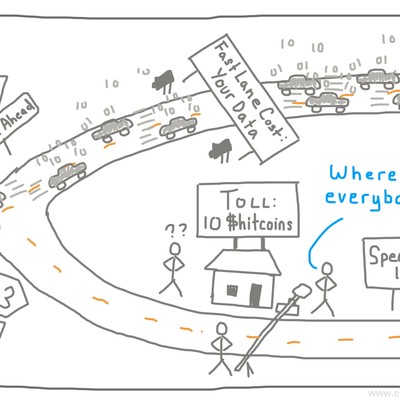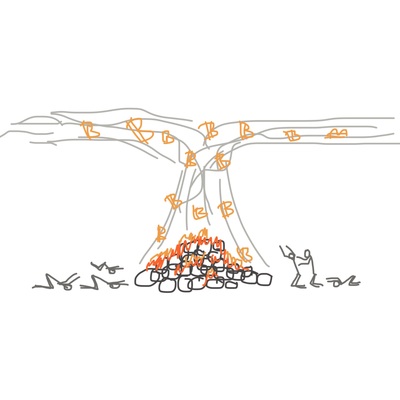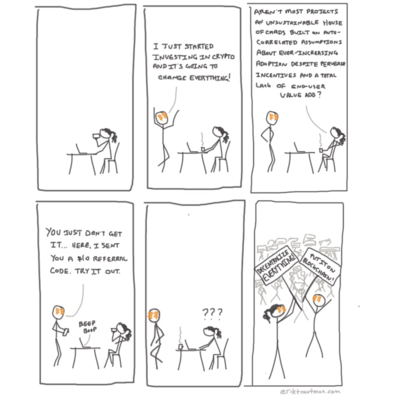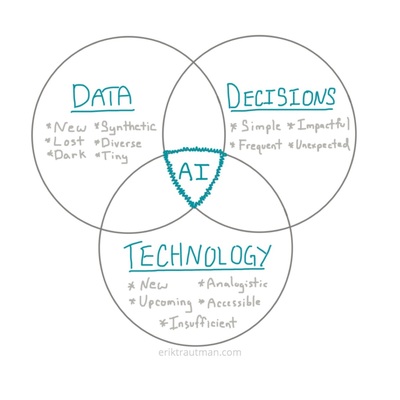From Producer to Product and Beyond
Producer
As a bottom-up guy, I've always needed to see the gears working to trust that the machine will do what I say it will. More than that, I believe that understanding the machine provides an unmatched power to deploy it.
So to confidently build a web-based tech business, I had to start by learning web development. But as important as that is, it's also easy to get caught up in the sprint and lose sight of the greater goal. Spending nights and weekends feverishly coding sure feels like a productive use of time and it can be a fantastic creative outlet but it isn't the optimal path to building value.
Recalling the Simple Model of Value Creation I laid out before, I've so far been learning the skills of a producer, the most granular level of value. It's an incredibly important skill set -- the best generals were soldiers and the best founders were product grunts too.
But that doesn't mean I want to stay as a producer. My goal has always been to become competent enough with production to comfortably build an MVP-level product, add value in any early-stage team, and develop enough familiarity with technology-driven organizations to someday lead one.
After a year of learning web development and dipping into the surrounding disciplines (e.g. UX and design), I'm past the inflection point of the learning curve and T-shaped enough to begin stepping outward to the next level. It's always a bit of a fuzzy question as to when one is "ready" to alter one's focus, but I'd rather move forward prematurely and struggle than languish too long.
Product
Product demands a whole new set of skills and a new perspective. It's really quite a broad term that contains a lot of moving parts: customer development, design, development, marketing, analytics, competitive analysis, distribution and managing the producers. I've already played around with product development and recently dove into analytics/marketing but there's a lot of ground to cover and I'm looking forward to tackling it all.
My goals for Product are a bit broader than those for being a Producer: I want to become an expert at the transferable skill of identifying a customer need and building and delivering a valuable and relevant product to market. This means checking off competency in all of the before-mentioned skill categories... not a simple task. It also includes the more collaborative elements of management and leadership, which aren't present at all on the individual Producer level.
The big question I have is whether a project like The Odin Project can offer a dense enough learning environment or a broad enough one -- particularly as regards the management components of Product under this framework. Only time and the forward trajectory of the project will tell, but I'm seeking a solution sooner than later and starting to feel an itch for a more intense learning environment.
Enterprise
When I finally raised my head to begin pondering the meta implications of the move from being a Producer to a Product person, I immediately found myself drawn towards the larger questions surrounding Enterprise as well. That's because my goal for Enterprise is simple but driving: I want to (be able to) build and run a durable and significantly value-creating business. It's tough to think about creating value with a single product without straying into the thoughts about the bigger picture which ultimately motivate me.
Product is very tactical and focused, at least at a high level (it's obviously much more of a crap shoot when you're in the details). They say a product manager is the CEO of his or her product line, which certainly forces one to appreciate the responsibilities a good PM needs to take on. That said, the real CEO is still the CEO of all the product lines and there's a measurable difference in scope between the two roles.
Enterprise represents a more strategic look at things. Because the enterprise provides the durable and sustainable "housing" for one or more products, it needs to facilitate inward-facing operations and act as the interface of the company to the outside world.
Inward-facing operations include managing product teams, setting up business structures (e.g. legal and accounting), higher level sales/marketing/distribution efforts, and retaining and managing talent.
There isn't really a clean divide between the inward- and outward-facing aspects of an enterprise, as some functions necessarily cross over. The hiring and retention/management of talent go hand in hand. Fundraising is very outward facing but derives from and feeds through to every function of the business. The last and possibly most major "outward-facing" component is strategic thinking -- the company's vision and plan, understanding of macro competitive forces and business development efforts.
Thinking Forward
I've lately been reading Peter Thiel's Stanford lecture notes as taken by Blake Masters and they've reminded me of the need to think bigger and more disruptive. A trap that's all too easy to fall into is focusing solely on execution because it draws you towards small-fry and dead-end ideas purely because they're usually easier to execute. Though my goal in this phase of life is to learn and I'm emphasizing execution, I'm not here to waste my time. It's been nice to have this refresher on big thinking, even if the later lectures did get unnecessarily tedious and pedantic.
I'm looking forward to immersing myself in a new batch of skills on the product side. There's nothing I like more than staring at a buffet of knowledge that I can't possibly finish in one sitting. The toughest thing will be to avoid getting sucked down any one particular rabbit hole for too long along the way.






